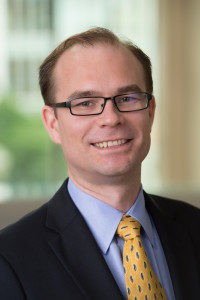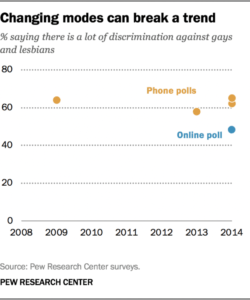The increased reliance on web-based research for public opinion surveys is raising questions about the relevance of long-accepted political and social trends documented in decades of telephone polling.
As a result, some religious leaders may wonder if it’s possible that prominently and consistently reported declines in belief and church attendance may be less dramatic than reported over the past two or three decades.

Andrew Mercer (Photo/Pew Research Center)
Might there be fewer nones, and more believers, than originally thought?
“This is something we are in the process of analyzing, especially with respect to religion, religious affiliation and attendance,” Andrew Mercer, senior research methodologist for the Pew Research Center, told Baptist News Global.
Pew announced late last month that it is now collecting information primarily online. Doing so, it said, has been found to be more accurate than telephone-based data collection.
The reason: the long-known phenomenon in which people speaking with pollsters by phone are more likely to give answers they think are socially acceptable or which cast them in a positive light, Pew said in the article.
Asking questions online minimizes that tendency.
Pew gave an example. Telephone-based polling from 2009 to 2014 suggested nearly two-thirds of Americans feel gays and lesbians face discrimination. But when the survey was administered online in 2014, just under half of Americans agreed such discrimination exists.

Another factor which skews phone surveys is that socially engaged Americans tend to participate more than those who are not. The latter often will simply not answer the phone or decline interviews.
“The key question then becomes: If a new online poll estimate differs noticeably from an older phone estimate, does that signal a real change in public opinion, or is the difference just an artifact of the different mode in which the poll was conducted?” Pew said in the article.
Mercer told Baptist News Global that Pew is currently studying those questions, and especially as they relate to religion.
But he added that it’s unlikely the result of that study will be that the decline of faith in America has been exaggerated.
It goes back to the idea that, on the phone, fewer will want to admit they no longer attend church or believe in God.
“The likelihood is that people are overstating their religiosity. A lot of research over the years has shown that.”
